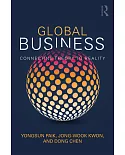This book brings together a collection of papers representative of various debates on the subject of capital controls. As a collection, the many seminal contributions in this
volume--theoretical, empirical, and narrative--aim to provide a balanced assessment of the role capital controls might play in taming capital flows, while recognizing their limitations and
possible drawbacks. Although most of the literature takes on an individual country’s perspective, capital flows inherently involve more than one country and the need for cooperation between
source and recipient countries is an issue of great importance. Forty-five chapters are divided into five parts: capital account liberalization: potential gains; sequencing of capital account
liberalization; role of capital controls to manage risks; effectiveness of capital controls as a short-run policy tool; measurement of capital mobility and capital controls. Annotation ©2016
Ringgold, Inc., Portland, OR (protoview.com)





















